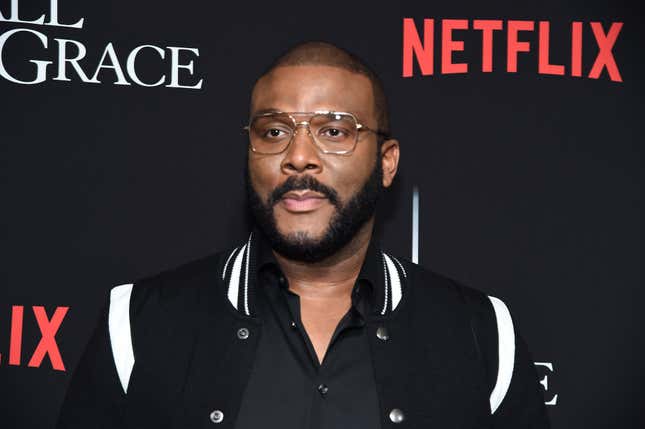
There comes a point in every full-throated internet or in-person defense of Tyler Perry when the arguments begin to sound like justifications for Amazon—or, well, Avon Barksdale.
“He creates jobs!”
“He serves his audience what they want!”
“You can’t knock his business acumen!”
“He’s self-made!”
“He gives back to the community!”
“He gave my aunt a job!”
While none of this is untrue, these now-clichéd rationalizations obscure a larger and deeper point, which those making these arguments are loath to admit.
Even if you allow that Perry’s work simply mirrors the sort of lessons and parables the sort of black people raised in the church were also raised on—where people aren’t humans as much as they’re avatars for allegorical meditations on a fixed binary of good and evil—and then work backward from there—it still doesn’t quite explain the misogyny, homophobia, and transphobia deeply embedded in his content. A lazy and overtly antiblack assessment is that these myriad biases and phobias also mirror what’s taught in the black church.
But while this is true, regardless of the race of the leadership and congregation, there are also many black churches led by pastors with progressive politics. It is possible to have a church/Christianity-based foundation to your work that doesn’t demonize sexually active women and men who happen to be gay; and that Perry chooses not to says more about him than the religion he’s inspired by. His politics are either deeply simple, deeply dangerous, or deeply lazy (or all three), and the people so vehemently in defense of him and his work (rightly) believe that a critique of him is also a critique of them. If they enjoy his work, they must also be all of the things he’s criticized for being.
This seems rather unfair and using artistic preferences to presume qualities about a person is messy as fuck. But if we have no problem applying that standard to (white) people who prefer, support, and fight for unabashedly racist art, why I do feel queasy when thinking of Perry’s biggest fans the same way?
I don’t know. I do know Perry is very aware of the critiques of him and the people who enjoy his work, and both the lead-up to A Fall From Grace and the film itself are an exercise in wagon-circling. Revealing you don’t have a writers’ room after decades of critiques of your writing is an unambiguous “fuck off” to critics; as is the recent claim the movie was filmed in five days. (At this rate, his next script will just be 40 tweets written in an Uber from Hartsfield–Jackson to his studio.)
That said, Perry’s relentless, almost pathological single-mindedness in creating an entertaining and compelling product for his base is, well, working. And not just for his base. Of the thousands of adjectives available to reasonably describe his work, boring has never been one of them. “Are You Not Entertained???” should be tatted on his neck. Or, better yet, stamped with temporary ink when he casts himself as a reformed thug turned kind-hearted plumber in Oops, I Fell Again: A Fall From Grace Pt. 2. As much as people have clowned the awkward hair and wig choices throughout Perry’s filmography, you can’t deny that a Chia Pet on Mehcad Brooks’ head is more entertaining than a fade would be. Continuity errors? Entertaining! Plot holes and inconsistencies the size of the Pittsburgh sinkhole? Entertaining! Extras drinking water so purified that it literally doesn’t even exist? Enterfuckingtaining!
It’s hard not to notice the similarities between Perry and the person who’s currently the president of the United States. Of course, he’s not able to enact violence on an international scale the way Donald Trump has, but they seem to be similarly thin-skinned, similarly disinterested in evolving, similarly hyper-focused on pleasing their most devout fans, similarly annoyed with workers’ unions, and similarly interested in the gospel of punishment and shame. And if Trump is the most American president we’ve had in my lifetime—the one whose values and sensibilities most align with the America that is instead of the country America pretends to be—Tyler Perry is the most American entertainer.

